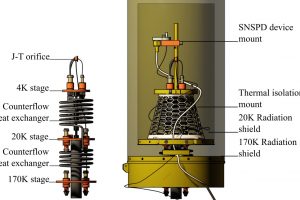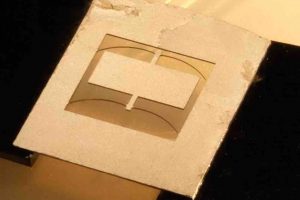
This research, states the university, includes developing advanced processes on multiple commercial micro- and nano-fabrication tools manufactured in the UK by Oxford Instruments Plasma Technology that can be transferred directly into companies for production.
The award, from the Engineering and Physical Sciences Research Council (EPSRC), was announced by the Minister for Universities and Science David Willetts at an event in London last week.
The funding will will support work undertaken by researchers from the university’s College of Science and Engineering in collaboration with Oxford Instruments Plasma Technology, the National Physical Laboratory, the National Microelectronics Institute and Gas Sensing Solutions.
The university says:
The funding will allow the University to purchase new equipment including several Oxford Instruments Plasma Technology tools to etch semiconductor materials and deposit electrically insulating layers, techniques used to fabricate high performance electronic and optical devices including transistors, LEDs and lasers.
The equipment will support a range of new research projects including:
• The development of more efficient power electronics, which could improve the lifespan of batteries in many consumer electronic devices as well as reduce their carbon footprint
• Improving the efficiency and durability of solar collection technology, creating a large reduction in the cost of large-scale exploitation of solar energy
• The development of a ‘superspectral’ imaging camera which will integrate visible, infrared and mid-infrared imaging sensors on a single chip, with applications for security and medical sensing technology
“Glasgow has a long history of successful exploitation of research which goes all the way back to James Watt’s invention and commercialisation of the condenser for the steam engine, and this award will help us continue that proud tradition,” said Professor Douglas Paul, Director of the University’s James Watt Nanofabrication Centre.
“We’re pleased that the EPSRC accepted our funding bid and we’re looking forward to helping support the UK’s efforts to become a more energy-efficient nation.”
(Image: An Oxford Instruments FlexAL Atomic Layer Deposition system)
 Electronics Weekly Electronics Design & Components Tech News
Electronics Weekly Electronics Design & Components Tech News



